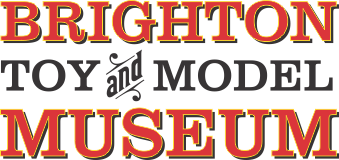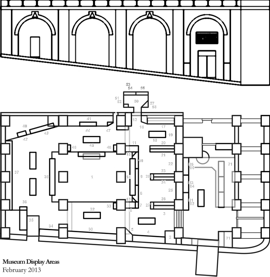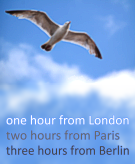Category:Henry Greenly
Henry Greenly in ~1910 [image info]
... and in 1924 [image info]
Model Railways and Locomotives magazine, 1910, founded in 1909 by Henry Greenly and W.J. Bassett-Lowke [image info]
1912 advert for "Model Electric Locomotives", by Henry Greenly [image info]
"The Miniature World of Henry Greenly", ISBN 0852423063 [image info]
Henry Greenly (1876 – 1947) was a talented and acclaimed engineer and designer of miniature steam locomotives.
He met W.J. Bassett-Lowke in around 1900, and the two became good friends, with Greenly even making a trip to the continent to meet up with French and German model manufacturers on W.J.'s behalf when Wenham found that he was unable to go himself.
Greenly and W.J. together founded Model Railways and Locomotives magazine in 1909, and Greenly's designs and plans were a noticeable feature of the Bassett-Lowke company's engineering catalogues.
As well as working with Bassett-Lowke (who had a Garden Railway range in several gauges that benefited from Greenly's engineering prowess) and other companies (and having his own engineering company in Hounslow), Greenly is supposed to have had a hand in designing some of the early Stuart Turner steam engines, and was locomotive designer and Chief Engineer on the Romney, Hythe and Dymchurch Railway.
He was also a prolific author, writing a range of books on model railways and model engineering, and substantial numbers of articles for model railway magazines.
Episodes
The young Greenly absorbed information about railways and model railways at such a rate that he quickly became an expert on a par with much older and more experienced people. Part of this aspect of Greenly's personality was a tenacious attention to facts and details, that perhaps sometimes went a little too far.
In an exchange of letters in The Engineer that included Greenly, a feud erupted between a number of "railwaymen" over the exact number of locomotives on the GWR that had had ten-foot wheels, with both sides citing apparently impeccable sources and impugning the other's intelligence and integrity (with, as a sidebar, a further dispute over locomotives with gears). During both sides' mission to prove the other wrong, it gradually began to emerge that the reason why their respective sources didn't have reliable recall of the facts was perhaps that the people concerned considered the details to be transient and trivial. Had a certain loco ever been briefly tried out with ten-footer wheels? Maybe, maybe not. Who cared?
"Coal vs spirit"
In another letters-page disagreement (in Model Engineer), a dispute between Greenly and L. Lawrence as to whether model and small-scale locomotives that were spirit-fired could be as good as those that burned real coal, the argument ended up with both sides being challenged to a competition (after which, hopefully, they'd shut up about the subject). Since Bassett-Lowke made spirit-fired engines, the company's team built a special loco, Challenger, to be trialled at the 1924 Model Engineer Exhibition. Pitting his opponent's existing home-built coal-fired loco against the best new, customised engine that B-L's team could create was obviously not a fair test, but it did create some useful publicity for the company.

W.J., with only his head visible on the right of the photo, appears to be enjoying the proceedings more than Greenly
"The WJ incident"
Given that W.J. Bassett-Lowke was reputed to hate being contradicted (and was supposed to have an occasional way of manipulating people that appeared totally out of character with his usual genial "Uncle Whynne" persona), it was perhaps only a matter of time before the two friends fell out in a way that couldn't be retrieved. There had been some tensions before over WJ's habit of making himself the public face of projects that involved other people, and Greenly had complained before about not being properly credited for his work, but these gripes had been addressed by giving him larger credits in a later issues, and tensions over creative control and accreditation in the "Model Railway Handbook" and "Model Railways and Locomotives" magazine seemed to resolve themselves by WJ listing himself on the cover of "the book" in a way that suggested he was sole author, and Greenly increasingly taking over "the magazine" as its official editor.
However, shortly before WW2, Greenly wrote a letter to WJ complaining that another B-L associate (Frederick James Camm) had produced some drawings for B-L that seemed to be copied from Greenly's work, without credit. Camm had a prodigious output of articles, books, and magazines, and it seems that somewhere in this torrent of material, the Greenly drawing had ended up being included as Camm's. As editor of a number of magazines, some of which (such as Practical Mechanics) were arguably in competition with Greenly's (e.g. Everyday Science), Camm's reputation as an editor was critical to his career, and he wasn't going to allow rumours that he was stealing the work of his rivals.
When WJ showed Greenly's letter to Camm, Camm took possession of it and sued Greenly for defamation, with the letter cited as physical evidence. Unlike WJ (whose interest over the years had been building up a profitable business), Greenly apparently didn't have much in the way of savings, and the threat of a court case that he was advised he'd lose drove him to declare bankruptcy. Since WJ's apparently-malicious meddling resulted in his good friend Greenly being left penniless, this seemed to pretty much mark the end of their working relationship.
Publications
Magazines:
- Model Railways and Locomotives
- Models, Railways and Locomotives (editor)
- Everyday Science (editor)
"Greenly" books listed in the 1924 Bassett-Lowke "Catalogue B":
- Henry Greenly, Model Engineer Handbook No.28. – Model Steam Engines: How to Run Them – "This is a book which should be studied by all who make or possess Model Steam Engines"
- Henry Greenly, Model Engineering by Henry Greenly. A guide to model workshop practice. – with 85 Photographs and 724 line drawings
- Henry Greenly, Model Steam Locomotives, their details and construction – with 376 photographs, diagrams and working drawings
- Henry Greenly, Model Electric Locomotives and Railways, their details and practical construction – with 326 photographs, diagrams and working drawings
- Henry Greenly, Model Railways, their design details and working construction – with 399 photographs, diagrams and working drawings
- Henry Greenly, The Ravenglass & Eskdale Railway Booklet. An illustrated history and description of the line, its locomotives and equipment – size 9 ins. × 6 ins., 26 pages, over 50 illustrations in half-tone and line
Some other books
- Alfred William Marshall and Henry Greenly Flying Machines: past, present and future. A popular account of flying machines, dirigible balloons and aeroplanes
- Henry Greenly, Trix TTR Permanent Way Manual ... Layout and operation of the Trix Turn OO gauge model railway
- Henry Greenly, Planning and Layout. A practical guide to the planning of indoor and outdoor model railways (Model Railway News Handbooks, No. 1)
References
- Ernest Alfred Steel and Elenora Howard Steel, The Miniature World of Henry Greenly (1973) ISBN 0852423063 - written by Greenly's daughter and son-in-law, esp. Chapter Two: The Enigma of the Mammoth Wheel
- Roland Fuller, The Bassett-Lowke Story (New Cavendish, 1984) ISBN 0904568342 - the falling-out with WJ is described on page 47.
External links
- Steam Index / People / Greenly (steamindex.com)
- Romney, Hythe and Dymchurch Railway, home page (rhdr.org.uk)
Subcategories
This category has the following 7 subcategories, out of 7 total.
Pages in category ‘Henry Greenly’
This category contains only the following page.
Media in category ‘Henry Greenly’
The following 15 files are in this category, out of 15 total.
- Bassett-Lowke stand, Model Engineer Exhibition 1924.jpg 1,600 × 1,074; 330 KB
- Caledonian set, Bassett-Lowke, model review (MRaL 1909-12).jpg 686 × 1,024; 138 KB
- Everyday Science, enamelled tinplate miniature poster.jpg 600 × 800; 377 KB
- HA Taylor Undertype Compound stationary steam engine, Stuart Turner (ST 1978-02).jpg 1,800 × 1,454; 1.05 MB
- Henry Greenly circa 1910.jpg 847 × 1,201; 100 KB
- Henry Greenly locomotive blueprints (Bond's 1946).jpg 1,072 × 1,600; 379 KB
- Henry Greenly's Full-size Diagrams, gauge 0 (BL-B 1924-10).jpg 1,025 × 1,600; 326 KB
- Henry Greenly, 1924.jpg 422 × 493; 28 KB
- Model Electric Locomotives, by Henry Greenly (MRaL 1912-10).jpg 1,492 × 2,264; 306 KB
- Model Railways and Locomotives magazine (April 1909).jpg 1,503 × 2,200; 570 KB
- Model Railways and Locomotives magazine, editorial page artwork, 1910.jpg 2,200 × 1,242; 563 KB
- Models, Railways and Locomotives editorial page graphic (MRaL 1912-10).jpg 1,200 × 636; 118 KB
- Models, Railways and Locomotives, magazine cover (MRaL 1912-10).jpg 808 × 1,200; 210 KB
- MRAL cover Dec1910.jpg 943 × 1,382; 228 KB
- The Miniature World of Henry Greenly 0852423063.jpg 688 × 1,024; 487 KB






















